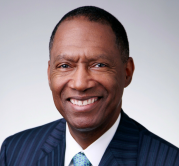Reflections on the future

I am rounding the corner on my professional career. After 43 years of working in the credit union movement, I am getting prepared for a new season.
I recently shared with a few colleagues the benefit of being in an industry for decades. Life is different today than in 1979 when I began as a rookie loan officer. The evolution of society and industries have much to teach us about our future. I’d like to share a few reflections about what lies ahead.
Credit union volunteers and professionals contribute to the movement in so many ways. The utilization of their talents and collaborations helps our institutions meet a global mission. The credit union purpose is more than what any one organization stands for.
For our movement to thrive, we all must be intentional about the future we seek. Many of us are adept at strategic planning for our individual credit unions and organizations. We assess our strengths and weaknesses. We survey the environment around us. We imagine the future and what we want to accomplish.
Strategic planning for the credit union movement is a somewhat different exercise. After all, without such planning, our industry could find itself in a place that is far removed from our imagination. To prevent this sort of calamity, all credit union organizations should undertake the responsibility of planning our collective future.
I have the privilege of serving as the Board Chairman for the African-American Credit Union Coalition (AACUC). As such, I am afforded a unique viewpoint on credit unions. This platform offers an opportunity to witness how our movement help people realize positive futures for themselves.
It is difficult to think about the future without an appreciation for the past. AACUC is celebrating its 25th Anniversary of hosting conferences. In the archives of our Association’s history lies testimonies and accounts of credit union heroism. We have seen the struggles and successes of advancing a community unique to our membership. Still, AACUC figures will admit that work remains to be done.
If we are to think strategically about the whole credit union movement, let’s be mindful of past lessons. By taking our personal reflections and institutional records into account, we place ourselves in the position to conduct strategic planning for the movement.
As we contemplate the strategic future of the movement, let’s etch some enduring ideologies in our plans. Here are some platforms for a movement strategic plan.
Principles strategy. For some, credit union services may appear as fungible commodities. After all, except for pricing, many financial products look indistinguishable from competitors’ offerings. The insistence that credit unions are different from our very core is a message that should not be abandoned. A strategic future should include a robust dialog on how credit unions separate themselves from mere mortal organizations.
Vision strategy. Strategy often includes a vision for the future. I imagine a world where stubborn, persistent, crippling, intergenerational poverty has been eradicated. Fantasy? I think not. Credit unions are a proof of concept for how an institutionalized mission can make a difference. Our collective strategy must include measures for reaching the full potential of all people and communities.
People strategy. The power of credit unions is bound in the relentless talents of its people. This is the fundamental motivation for the message around diversity and inclusion. When all participants in the movement are free to exercise their best gifts, all credit unions benefit. A global credit union strategy should include a commitment to help everyone succeed. Anything less than universal engagement sells the movement short.
Financial Strategy. The financial plan for the credit union movement is bound in the successes of our individual members. I don’t believe we can bifurcate the credit union’s victory from the achievements of members. It is a hollow message to tout an institutional bottom-line at the sacrifice of households. The success metric for credit unions is tied to how well our members are doing.
Finally, we credit unions distinguish ourselves by the ideals we hold dear. If principles matter to us, then these tenets should make way into our strategies. Doing so helps ensure we don’t lose the passions for our beliefs.
I’ve learned a thing or two from people who took the time to guide my career along the way. Many of you have corrected my missteps and challenged me to pursue lofty ambitions. I have had the great value of accepting wise counsel from those who held to the philosophical views of credit unions.
I see a bright opportunity to create the future we envisioned decades ago. I firmly believe credit unions owe our members an aspirational future.
Let’s reflect on the roads we’ve traveled to arrive here today. Let’s keep the dreams of helping communities do well alive. By being intentional on the future we want, we establish the strategy we should pursue today.

